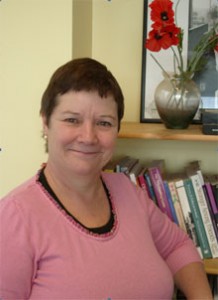A GUEST POST BY AVILA KILMURRAY --
 I was recently at the Windsor Women’s Centre - located in the Village area of south-west Belfast – a largely loyalist community of traditional mill houses that have outlasted the linen mills that they were built to serve. It is an area that experiences high rates of unemployment; a changing ethnic mix and still suffers from the impact of the Troubles. The Village still has an identity all of its own.
I was recently at the Windsor Women’s Centre - located in the Village area of south-west Belfast – a largely loyalist community of traditional mill houses that have outlasted the linen mills that they were built to serve. It is an area that experiences high rates of unemployment; a changing ethnic mix and still suffers from the impact of the Troubles. The Village still has an identity all of its own.
The Windsor Women’s Centre was built in the early 1990’s. The local women worked with young architects to help design a building that has provision for babies and childcare, as well as training rooms and meeting rooms for pensioners.
The original centre is hung with crafts and art work that depict women’s lives. Some of the artwork was badly singed in the two fires that were set to destroy the Centre after an early visit by Mary Robinson when she was President of Ireland. It was a clear signal – it is dangerous to get too far ahead of local community sentiment where even the dogs in the street are supposed to know what is acceptable to whom. In a society emerging from the long years of the Troubles it is still important to keep a finger in the air to establish direction from where the wind is blowing; and whether it is gusting with any rumours in its wake.
Despite its early vicissitudes, the Women’s Centre has added two local two-up and two-down red bricked houses to its stock. They are now used to offer computer training, after-school provision for children, English language classes for recent immigrant women, welfare benefits advice and a growing feature of post-Troubles Belfast - alternative therapies, massage, reflexology; aromatherapy and the like.
The Windsor Women’s Centre is not just about return to education; access to training; support for children; the integration of immigrant women and community support for women on probation – it also has a proud record of local women who have earned their first ever GCSE or A Level. But more than this, it networks across the city of Belfast, with Women’s Centres in other single identity areas – Nationalist West Belfast, as well as the Unionist East. Peer support enables each to learn from one another, as well as to grow in solidarity. This process is not achieved by ignoring differences but by acknowledging them and creating the space for mutual respect. This was a courageous endeavour when it was initiated, two decades ago; today, it is not quite so pioneering, but it still demands energy and effort.
The Village area has its own local Greater Village Regeneration Trust now, which is working well for the regeneration of this deprived area. One of the targets is to improve housing so that local people will no longer have to use outside toilets or live in cramped and inadequate conditions. But there is still a need for the Windsor Women’s Centre. It is an oasis of support for women who still need somebody to believe in them - unconditionally.
What distinguishes the Women’s Centre – and its sister Centres across the city – is that it is developmental in philosophy and approach. It does not simply offer training to women who may be experiencing depression. It does not demand that every woman who comes through its door will leave with an accredited qualification. It does not take women by quota or statutory subsidy. It welcomes all women and works to encourage each woman to find herself. With the current recession those foot-falls across the threshold are increasing as women are in danger of losing their jobs in the service sector.
The Windsor Women’s Centre knows that the personal is still political and that in hard economic times both are important. Of course, many of their staff members and tutors are funded on a month-to-month basis and protective notices flutter like confetti. However, that’s the way with community-based Centres, and as the proverbial dogs in the street will tell you, there are no bonuses or performance related pay around this neck of the woods.
In the Village the certainty of still being in existence with the doors open this time next year, is a bonus that will enable local women to turn hard times into an opportunity.
Avila Kilmurray is Director of the Community Foundation for Northern Ireland (previously the Northern Ireland Voluntary Trust) since 1994.
